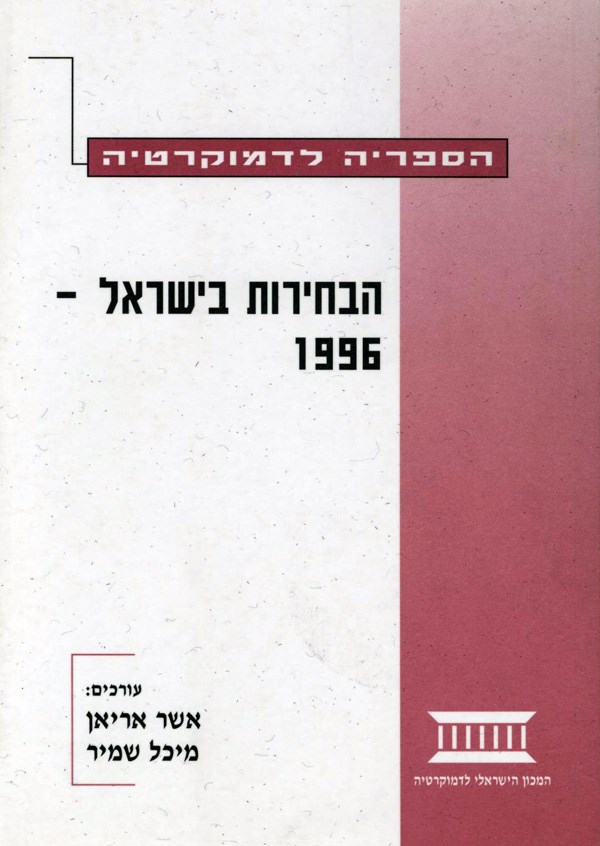The Elections in Israel - 1996
- Written By: Asher Arian, Michal Shamir
- Publication Date:
- Cover Type: Softcover | Hebrew
- Number Of Pages: 389 Pages
- Price: 80 NIS
This anthology analyzes the Knesset and Prime Ministerial elections, held in Israel on May 29th 1996. The analysis stems from cultural and institutional perspectives. In that election, identity dilemmas were at the core of the central points of dispute and the voting patterns. The first part of the book addresses those identity dilemmas for different sectors of the population from a variety of perspectives. The second part of the book focuses on electoral reform, particularly with regard to the new Elections Law and the widespread phenomenon of party primaries and their consequences.
This anthology analyzes the Knesset and Prime Ministerial elections, held in Israel on May 29th 1996. The analysis stems from cultural and institutional perspectives. In that election, identity dilemmas were at the core of the central points of dispute and the voting patterns. The first part of the book addresses those identity dilemmas for different sectors of the population from a variety of perspectives. The second part of the book focuses on electoral reform, particularly with regard to the new Elections Law and the widespread phenomenon of party primaries and their consequences.
Leading social scientists from Israeli and American universities, using different methods and representing diverse intellectual traditions, address the precedent-setting events of Israel's 1996 elections. The contributors discuss the meaning of collective identity, the role of religion and nationalism in modern Israel, the political behavior of Israeli Arabs and the secrets of success of the immigrant party. Also discussed are issues such as the impact of the direct election law on party organization, primaries and coalition-formation strategies, the repeated electoral failure of Shimon Peres, and the role of the media in the election campaign.
The 1996 elections in Israel represented a "first" in Israeli politics in many ways. For the first time Israelis directly elected their prime minister and, in simultaneous but separate elections, they elected their 120-member Knesset (parliament). Also, it was the first time that elections were held after the mutual recognition of Israel and the Palestine Liberation Organization following the Oslo accords and it was the first election held after the assassination of Prime Minister Yitzhak Rabin.
Asher Arian is a senior research fellow at the Israel Democracy Institute, Professor of Political Science at the University of Haifa and a Distinguished Professor of Political Science at the Graduate Center of the City University of New York.
Michal Shamir is Associate Professor of Political Science at Tel Aviv University.
For the English edition by SUNY Press, click here.

